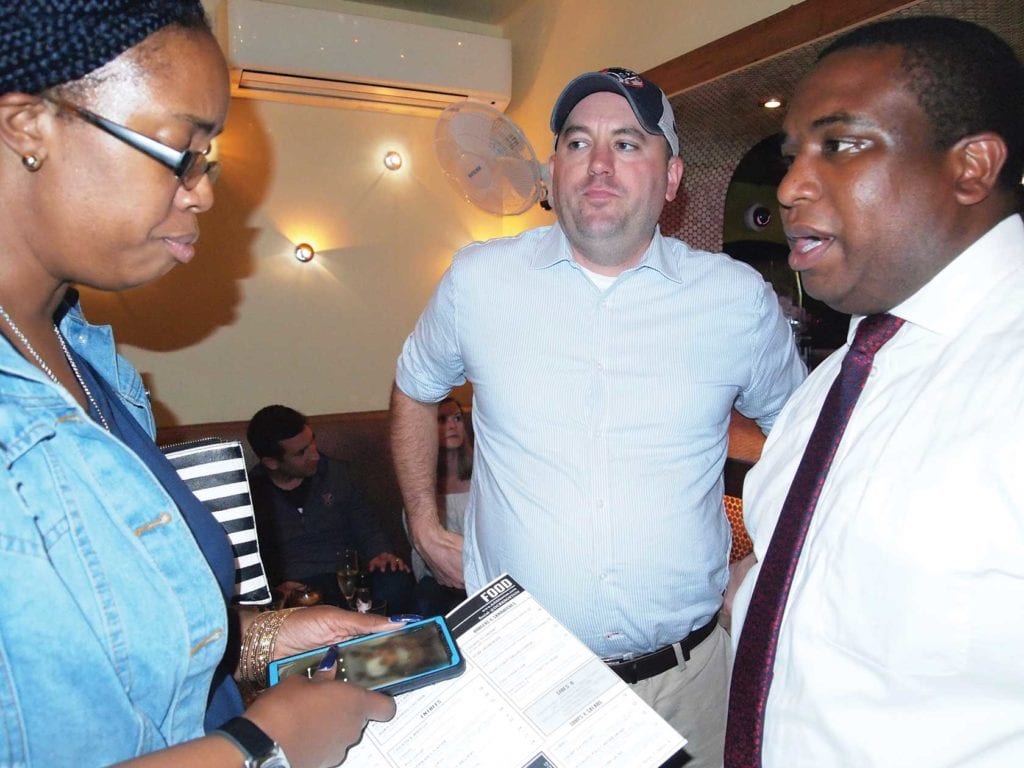Campaigns struggled against low turnout
Votes in majority black areas dipped below 10 percent mark

Michelle Wu was the biggest winner in last week’s preliminary election, scooping up victories in the vast majority of the city’s precincts from East Boston to Hyde Park.
The Election Department’s unofficial results showed Wu with 26,622 votes, a commanding lead over the next-highest vote-getter, Annissa Essaibi-George, who garnered 18,993 votes.
“Fifty-nine percent of voters who cast ballots voted for Michelle Wu,” notes Jonathan Cohn, who co-chairs the Issues Committee for the group Progressive Massachusetts.
Wu’s lead may have been even greater had voter turnout not been a dismal 11 percent. This year, the black, Latino and white progressive voters who made up a substantial portion of her base appear to have voted in lower numbers than the city average, with the exception of those living in areas where competitive challengers forced a preliminary election battle.
In Ward 18, for example, where seven candidates were campaigning for the District 5 seat, turnout was 15 percent.
The low turnout overall is in keeping with a general downward trend in city elections, particularly municipal preliminaries. Among the lowest-turnout precincts in the city was the Seaport District, which occupies Precinct 1 in Ward 6. There, just 281 of the 6,026 registered voters turned out. The high-income Seaport dwellers bucked the rest of Southie, giving Wu a majority of their votes. Well-heeled voters may be attracted to Wu’s progressive platform, but with a 4.6 percent turnout rate, the Seaport dwellers are no match for the other 9 precincts in Southie, all of which delivered Flaherty more than twice as many votes as Wu received.
Predominantly white precincts on the city’s periphery posted strong numbers, many of them with no district races on the ballot. In Ward 16, precinct 12, home to a large number of Boston Police officers and fire fighters, turnout was 34.7 percent. There, the 1,188 voters who turned out backed at-large challenger Erin Murphy and incumbents Michael Flaherty, Annissa Essaibi-George and Althea Garrison.
When looking at precincts where white candidates won the greatest numbers of votes, a familiar doughnut pattern emerges, with Flaherty racking up wins in Southie’s Wards 6 and 7 and other predominantly white and traditionally-Irish American neighborhoods on the periphery of the city, including the Readville and Fairmount sections of Hyde Park, West Roxbury precincts bordering Dedham, most of Charlestown and the Orient Heights section of East Boston.
Votes for Essaibi-George, Erin Murphy and Marty Keogh follow the same pattern, with Murphy winning seven precincts in Neponset and Essaibi-George winning in the Polish Triangle area that straddles Southie and Dorchester, the Savin Hill and Lower Mills sections of Dorchester. Keogh won two precincts in West Roxbury and one in Readville.
Flaherty’s and Essaibi’s strength in the predominantly white sections of Dorchester and West Roxbury mirrors the electoral base Martin Walsh relied on in his victory in the 2013 preliminary and suggests that a white candidate based in Dorchester or South Boston could still rely on the same strong base of support that propelled Walsh into the mayor’s office.
Predominantly black neighborhoods posted different results than the Wu, Essaibi-George, Flaherty, St. Guillen pattern that dominated the city as a whole. In the Roxbury-based Ward 12, for example, Wu still scored the highest number of votes, but Essaibi-George, Priscilla Flint-Banks and Althea Garrison bumped Flaherty into 5th place. Mejia came in 6th, ahead of St. Guillen.
In Ward 14, which occupies a predominantly black section of Dorchester along Blue Hill Avenue into Mattapan Square, voters went with Wu, Essaibi-George, Flaherty and Garrison.







